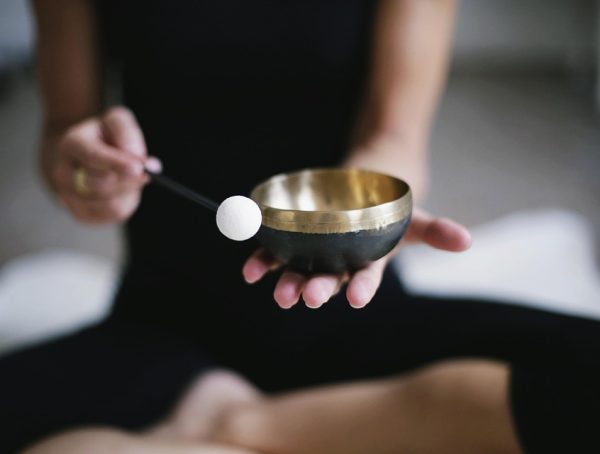The Physical Health Benefits of a Regular Meditation Practice
In our fast-paced world, where stress and chaos often seem to dominate our daily lives, the search for a moment’s peace can feel overwhelming. While many people may view meditation primarily as a mental or spiritual exercise, research indicates that it offers remarkable physical health benefits as well. The practice of meditation, which has roots in various ancient traditions, can significantly enhance your overall physical well-being, reduce stress, and foster a more balanced lifestyle.
The Science Behind Meditation and Physical Health
Numerous studies have demonstrated how meditation can positively impact physical health. One of the primary mechanisms through which meditation enhances well-being is its ability to reduce stress. When individuals practice meditation, they activate the body’s relaxation response, a state in which blood pressure drops, heart rate slows, and breathing becomes deeper. This biological change may substantially decrease the risk of stress-related ailments, including heart disease and hypertension.
Moreover, regular meditation can improve immune function. Research led by Dr. Richard Davidson at the University of Wisconsin-Madison found that individuals who consistently practiced meditation exhibited increased antibody responses to vaccines. This implies that meditation may bolster your immune system, helping to fend off illness and infections.
Benefits of Meditation on Physical Health
-
Reduced Stress: Chronic stress is associated with a number of physical health problems, from cardiovascular disease to digestive issues. Meditation encourages relaxation, which can significantly decrease stress hormones like cortisol.
-
Improved Heart Health: Meditation practices such as mindfulness and transcendental meditation have been shown to lower blood pressure and promote heart health. Regular practitioners often report a decrease in heart rate and enhanced cardiovascular functioning.
-
Pain Management: Mindfulness meditation has been studied for its effectiveness in pain management. Research shows that it can help reduce perceptions of pain in conditions like arthritis and fibromyalgia, making it a valuable tool for those experiencing chronic pain.
-
Enhanced Sleep Quality: Regular meditation can lead to deeper and more restful sleep. A study published in JAMA Internal Medicine indicated that mindfulness meditation supports sleep quality and reduces insomnia.
-
Increased Immunity: As mentioned earlier, meditation fosters immune system function, making it easier for your body to ward off infections. This is crucial for maintaining overall health, especially during seasonal changes or illnesses.
-
Weight Management: Meditation can play a pivotal role in weight management by encouraging healthier eating habits and reducing emotional eating. By fostering a greater awareness of physical sensations and emotions, meditation can lead to more balanced eating patterns.
- Enhanced Cognitive Functioning: Meditation improves focus and memory performance, leading to a sharper mind. This aspect can indirectly contribute to better physical health by supporting motivation for exercise and healthy living.
Action Steps to Start Your Meditation Journey
Incorporating meditation into your daily routine doesn’t have to be complicated. Here are some actionable steps to help you get started:
-
Set Intentions: Begin by setting clear intentions about why you want to meditate. Whether it’s to reduce stress, improve your health, or cultivate mindfulness, knowing your reasons will help motivate you.
-
Choose a Comfortable Space: Find a quiet and comfortable space where you can sit or lie down without distractions. This environment will help you focus and relax.
-
Start Small: If you’re new to meditation, start with just 5 to 10 minutes a day. Gradually increase the duration as you become more comfortable with the practice.
-
Use Guided Meditations: Consider using apps or online resources that offer guided meditations. These can help structure your sessions and provide valuable instruction on techniques.
-
Practice Mindfulness Throughout Your Day: Beyond formal meditation sessions, incorporate mindfulness into your daily activities. Focus on the sensations of eating, walking, or even breathing. This practice enhances your awareness and reinforces the benefits of meditation.
-
Join a Meditation Group: Connecting with others who meditate can enhance your motivation and deepen your practice. Look for local groups or online communities.
- Be Patient and Consistent: Like any skill, meditation requires practice. Be patient with yourself and set a regular schedule. Consistency is key to experiencing the full benefits.
Conclusion
The physical health benefits of a regular meditation practice extend far beyond relaxation and stress relief. From improving heart health to boosting the immune system and enhancing sleep quality, the impacts are profound and transformative. By incorporating meditation into your daily routine, you not only nourish your mind but your body as well.
As you embark on this beautiful journey towards better health, remember that progress takes time, and every small step counts.
"The greatest weapon against stress is our ability to choose one thought over another." — William James
If you enjoyed this content and would like to discover more insightful health tips, feel free to follow Kevin on Instagram @KSteineman for daily motivation and inspiration.
You might also like
More from Meditation
The Role of Mantras in Transcendental Meditation: A Deep Dive
The Role of Mantras in Transcendental Meditation: A Deep Dive Transcendental Meditation (TM) has garnered a significant following across the globe, …
The Science Behind Meditation: Improving Mental Health Naturally
The Science Behind Meditation: Improving Mental Health Naturally In today's fast-paced world, the pursuit of mental wellness has become paramount. Thousands …
Understanding the 7 Types of Meditation for Beginners
Understanding the 7 Types of Meditation for Beginners: A Path to Inner Peace Meditation has become a popular practice in recent …


































